Writing: Fiction
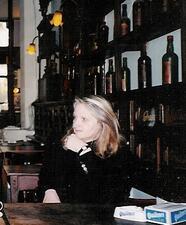
Diana Raznovich
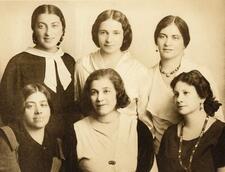
Sarah Reisen
Sarah Reisen was both a gifted Yiddish writer in her own right and a respected translator of great literature into Yiddish for children and adults. Recognized by contemporaries for her humane literary sensibility, she brought to Yiddish literature not only her own creative works but also her translations, which introduced readers of all ages to world literature.
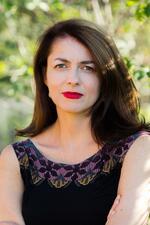
Irina Reyn
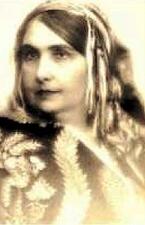
Elissa Rhaïs
Elissa Rhaïs’s novels and short stories, set in her native Algeria, were a great success among readers of the années folles of the 1920s and were praised by critics who admired her acute perception of the Muslim soul. She portrayed the lives of passionate and independent North African women, breaking the prevailing stereotypes of the colonial times.
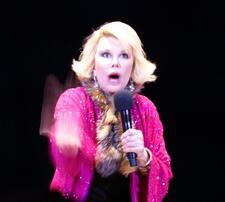
Joan Rivers
In revues, nightclub acts, concert halls, and on television, Joan Rivers popularized and perfected a genre of comedy that challenged reigning social conventions. After breaking into Chicago’s comedy scene in 1961 at Second City, Rivers became known for her comedic routines, books, and the talk show for which she won an Emmy for in 1990.
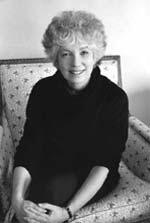
Anne Roiphe
A prolific journalist, essayist and novelist, Anne Roiphe is an American writer known for tackling issues of feminism and Jewish identity. Despite her sometimes controversial writings, Roiphe has become an important voice for secular Jews who, while perhaps uncomfortable with organized religion, nevertheless feel an attraction and a commitment to their Jewish heritage.
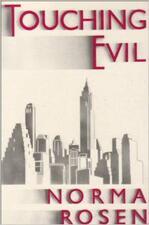
Norma Rosen
Born in Brooklyn in 1925 to secular and assimilated parents, Norma Rosen was an American-Jewish novelist, essayist, educator, editor, and professor. Rosen’s exploration of Jewish history and religion in her writings contributed to questions surrounding Jewish theology and Jewish feminism in the second half of the twentieth century.
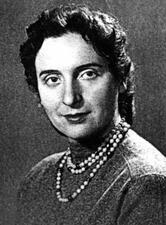
Chava Rosenfarb
Chava Rosenfarb, a major Yiddish novelist of the second half of the twentieth century, is one of the few Holocaust survivors who transmuted their experiences into fiction rather than memoirs or reminiscences.
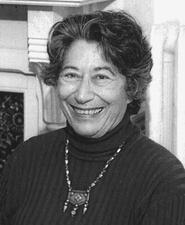
Sylvia Rosner Rothchild
Sylvia Rosner Rothchild was a prolific writer and historian whose works of fiction and nonfiction explored American Jewish identities and captured audiences. Many of her writings depict the descendants of Eastern European Jews who arrived in the United States in the decades surrounding the turn of the twentieth century.
Bernice Rubens
One of Britain’s most successful post-World War II authors, Bernice Rubens was born in Cardiff, Wales, in 1928. In 1970, she became the first woman recipient of the Booker Prize for her novel The Elected Member.
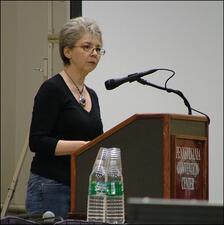
Mary Doria Russell
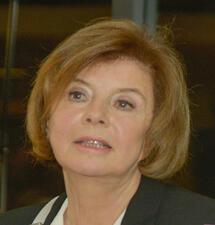
Michèle Sarde
Writer Michèle Sarde’s biographies, novels, and essays cover a wide range of themes and issues, including female literary figures, women’s equality, and the trauma of war persecutions through the lens of both the Holocaust and the Armenian genocide. She has received many awards for her work and taught at Georgetown University for over 30 years.
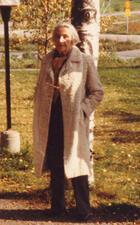
Nathalie Sarraute
Writer and lawyer Nathalie Sarraute was an innovative figure in post-World War II French literature. No longer allowed to practice law during the German occupation of France, she posed as the governess of her three daughters to hide her Jewish identity. Sarraute’s many novels and plays are characterized by an “inwardness” and an unusual lack of characters, names, and plot.
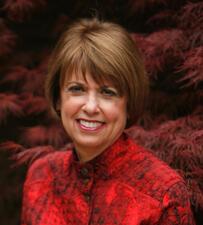
Sandy Sasso
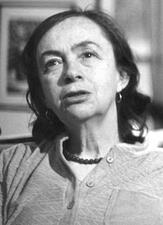
Beyle Schaechter-Gottesman
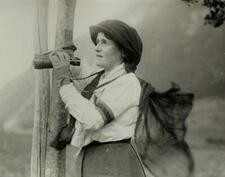
Alice Schalek
Alice Schalek first entered the public sphere at the turn of the century as the author of a well-received novel, published under the male pseudonym Paul Michaely. The first woman in Austria to become a career photojournalist and travel writer, and the first and only female member of the Austrian Kriegspressedienst (war information unit) during World War I, Schalek paved the way for careers in both photography and journalism for other women.
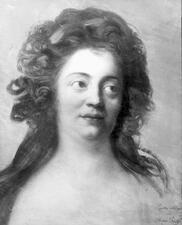
Dorothea Mendelssohn Schlegel
Dorothea Mendelssohn Schlegel was an author and editor who published work under her husband’s name that received little recognition during her lifetime. An intelligent and spirited woman, she changed her name from Brendel to Dorothea, divorced the husband her parents had chosen for her, married a controversial writer, and converted first to Protestantism in 1804 and then to Catholicism in 1808.
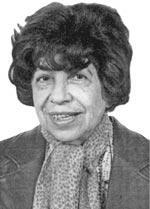
Alice Schwarz-Gardos
As a journalist, editor and foreign correspondent, Alice Schwarz-Gardos wrote articles for German-language newspapers in Israel and Europe from an explicitly Zionist and patriotic point of view. Besides her journalistic work, Schwarz-Gardos published eleven books in German.
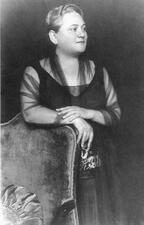
Eugenie Schwarzwald
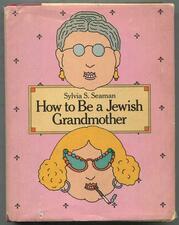
Sylvia Bernstein Seaman
“I’m still capable of marching. I marched sixty years ago. I just hope my granddaughter doesn’t have to march into the next century.” Sylvia Bernstein Seaman was a pioneering feminist of the twentieth century who broke the silence around breast cancer through her frank writing.
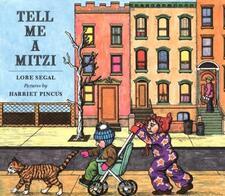
Lore Segal
A respected writer whose work was informed by her experiences as a child refugee from Nazi-occupied Austria, Lore Segal published several books of autobiographical fiction for adults as well as several books for children and translations. She was elected to the American Academy of Arts and Sciences in 2006 and named a finalist for the Pulitzer Prize in 2008.
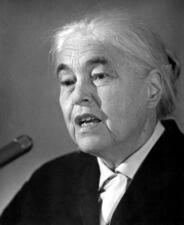
Anna Seghers
Anna Seghers is considered one of the most important German women writers of the twentieth century. Her many novels and stories written during her multiple exiles, including Das siebte Kreuz (1942) adapted into the Hollywood film “The Seventh Cross,” reflect her strong socialist and anti-fascist beliefs, and she remains controversially linked to her later involvement with the East German government.
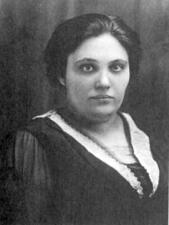
Yente Serdatsky
Proud, independent, enterprising, and contentious, Yente Serdatsky exemplifies the enormous difficulties experienced by Yiddish women writers in achieving recognition. Serdatsky published stories, one-act plays, and dramatic sketches in various Yiddish periodicals, and focussed on the narratives of immigrant women like herself.
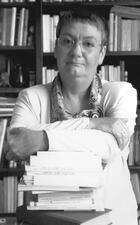
Clara Sereni
Clara Sereni was an Italian writer of Jewish descent. The rich legacy of her Jewish roots as well as her inherited passionate political commitment permeate all her narrative works. The act of writing offered Sereni an opportunity to articulate female subjectivity and language experimentation, providing a setting for exposing issues related to identity, politics of gender, disability, and ethnic diversity while building a new utopia.

Havvah Shapiro
“Our literature lacks the participation of the second half of humanity.” Thus proclaimed the Hebrew writer Hava (Eva) Shapiro (1878-1943) in her 1909 feminist manifesto, the first ever in the Hebrew language. She was the most prolific female Hebraist of her era to remain in the Diaspora and the first woman ever to have kept a diary in Hebrew.


